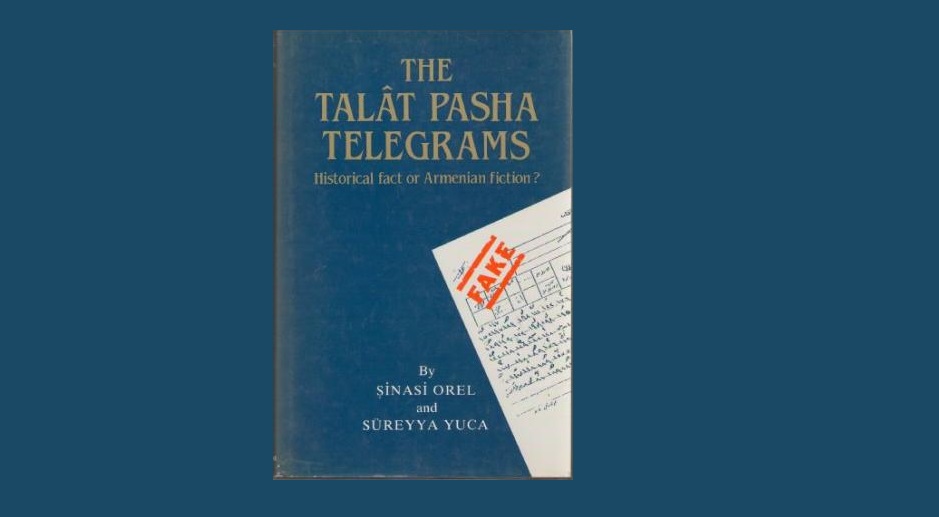October 8, 1912 is the date the Balkan wars started. During these wars, almost two hundred thousand soldiers lost their lives on the fronts within less than a year. Although it is assumed that the number of civilian deaths is multitudes of this number, no exact calculation has been made. The Turkish migration, starting from Thrace (Rumelia) with the “War of 93” between 1877 and 1878, has turned into an ultimate deportation during the Balkan Wars and the succeeding World War. The numbers of those who perished or migrated has taken its place among the unrecorded tragedies of recent history with untold stories, buried in the collective memory of the Turkish people. Among the limited numbers of research made on this issue, those of Ambassador Bilal Şimşir and Professor Justin McCarthy are the first to come to mind.
Indifference and negligence is not the answer to why the number of atrocities, deaths and migrations the Turks were subjected to in Rumelia was not recorded and why those responsible for these acts were not brought to account. The Republic of Turkey, which has assumed the heritage of the Ottoman state, has adopted the principle of founding the new state on looking forward to the future, opening a new chapter and bringing peace and stability to the region in the future instead of coming to terms with the past.
This approach of the Turkish Republic was also valid for the atrocities mutually committed in the eastern borders of the Ottoman state in the eve and during the First World War. It was hoped also here that leaving the tragedies of the war behind would serve a new understanding. While Turkey’s silence has been regarded as a stand of maturity in the context of the tragedies on the other fronts, the Armenian side in particular and their advocates who helped provoke and mobilize the Armenians have resorted to abusing it as acceptance of crime merely through the interpretation that silence is rooted in consent.
At the point reached today, unfortunately, the old books are opened enabling mutual accusations and callings to account, thus leading the constructive energy towards developing good neighborly relations to give way to destructive energy. Notwithstanding, a great potential exists for the peoples and governments of both countries to achieve together regional peace and prosperity. Historical memory and emotions are never one-sided. A saying in this geography could give guidance to efforts of imposition: enforced beauty cannot be. The sincere call of Center for Eurasian Studies, which pays meticulous care to academically filtering Turkish-Armenian relations, is for the constructive energy to come into play as soon as possible.
© 2009-2025 Center for Eurasian Studies (AVİM) All Rights Reserved
No comments yet.
-
THE MOSCOW SUMMIT OF THE COLLECTIVE SECURITY TREATY ORGANIZATION
Alev KILIÇ 23.12.2012 -
THE EUROPEAN UNION AND THE CAUCASUS
Alev KILIÇ 06.12.2012 -
THE UNACCEPTABLE STATUS QUO IN NAGORNO-KARABAKH AND LITHUANIA
Alev KILIÇ 28.02.2013 -
 EUROPE AND THE EUROPEAN UNION - THE EUROPEAN SEGREGATION
EUROPE AND THE EUROPEAN UNION - THE EUROPEAN SEGREGATION
Alev KILIÇ 29.01.2018 -
COOPERATION AT THE WIDER BLACK SEA BASIN AND CHANGING TIMES
Alev KILIÇ 26.05.2013
-
 THE CALCULATED DISMANTLEMENT OF ACADEMIC ETHICS: THE CASE OF TANER AKÇAM
THE CALCULATED DISMANTLEMENT OF ACADEMIC ETHICS: THE CASE OF TANER AKÇAM
Aslan Yavuz ŞİR 29.12.2016 -
 24 APRIL
24 APRIL
AVİM 24.04.2019 -
FRANCE-TURKEY: PERPETUAL CRISIS
Ömer Engin LÜTEM 19.12.2011 -
THE MESSAGE OF THE PRIME MINISTER
Ömer Engin LÜTEM 24.04.2014 -
PRESIDENT SARKISIAN AND TURKEY
Ömer Engin LÜTEM 21.01.2012
-
25.01.2016
THE ARMENIAN QUESTION - BASIC KNOWLEDGE AND DOCUMENTATION -
12.06.2024
THE TRUTH WILL OUT -
27.03.2023
RADİKAL ERMENİ UNSURLARCA GERÇEKLEŞTİRİLEN MEZALİMLER VE VANDALİZM -
17.03.2023
PATRIOTISM PERVERTED -
23.02.2023
MEN ARE LIKE THAT -
03.02.2023
BAKÜ-TİFLİS-CEYHAN BORU HATTININ YAŞANAN TARİHİ -
16.12.2022
INTERNATIONAL SCHOLARS ON THE EVENTS OF 1915 -
07.12.2022
FAKE PHOTOS AND THE ARMENIAN PROPAGANDA -
07.12.2022
ERMENİ PROPAGANDASI VE SAHTE RESİMLER -
01.01.2022
A Letter From Japan - Strategically Mum: The Silence of the Armenians -
01.01.2022
Japonya'dan Bir Mektup - Stratejik Suskunluk: Ermenilerin Sessizliği -
03.06.2020
Anastas Mikoyan: Confessions of an Armenian Bolshevik -
08.04.2020
Sovyet Sonrası Ukrayna’da Devlet, Toplum ve Siyaset - Değişen Dinamikler, Dönüşen Kimlikler -
12.06.2018
Ermeni Sorunuyla İlgili İngiliz Belgeleri (1912-1923) - British Documents on Armenian Question (1912-1923) -
02.12.2016
Turkish-Russian Academics: A Historical Study on the Caucasus -
01.07.2016
Gürcistan'daki Müslüman Topluluklar: Azınlık Hakları, Kimlik, Siyaset -
10.03.2016
Armenian Diaspora: Diaspora, State and the Imagination of the Republic of Armenia -
24.01.2016
ERMENİ SORUNU - TEMEL BİLGİ VE BELGELER (2. BASKI)
-
AVİM Conference Hall 24.01.2023
CONFERENCE TITLED “HUNGARY’S PERSPECTIVES ON THE TURKIC WORLD"









